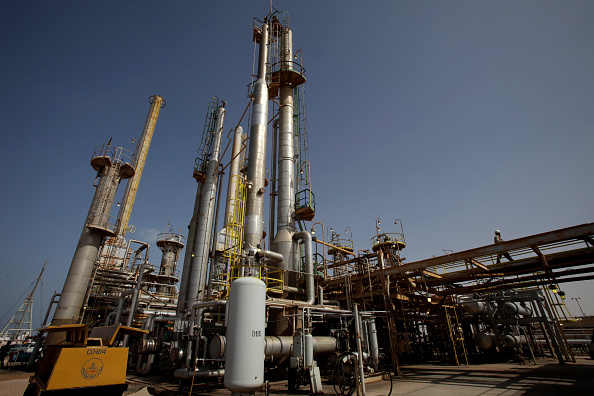Tripoli – Libya’s only operational oil refinery was “severely” damaged after gunmen battled for three hours around the complex, the National Oil Corporation said.
“The Zawiya Oil Complex was severely damaged as a result of skirmishes by armed groups,” Libya’s state oil company NOC said late Tuesday.
“Those involved held no regard for the lives of workers at the site.”
Fighting raged overnight Monday to Tuesday, some 50km west of the capital Tripoli.
Eight oil storage tanks and five other tanks for oil and chemical products were damaged and were leaking while the electrical transformer of the power supply system was also knocked out, it said.
ALSO READ | Rare Libya conference seeks support ahead of landmark elections
Libya’s vast oil sector, the backbone of its economy, has suffered regular halts in production over the decade since a Nato-backed revolt toppled dictator Muammar Gaddafi and sparked the country’s violent disintegration.
“The infrastructure of the oil sector represents the lifeblood of the Libyan state,” NOC chief Mustafa Sanalla said.
“Vandalising these facilities, destroying them, or exposing their workers to danger, is a crime that cannot be tolerated.”
Images posted on social media showed gunmen exchanging heavy fire around the refinery, but neither the identity of the groups nor the cause of the clashes is known.
NOC did not give details about the combatants.
ALSO READ | Libya conference seeks support ahead of key elections
Libya was gripped by violence and political turmoil in the aftermath of the 2001 uprising against Gaddafi.
In recent years, the country has been split between two rival administrations backed by foreign powers and myriad militias.
The “oil crescent” lies in one of the most hotly fought over areas, halfway between Tripoli and Benghazi in the northeast, under the grip of forces of strongman Khalifa Haftar.
But following a ceasefire between eastern and western forces last year, NOC reopened all the country’s oil installations and production bounced back.
Today it produces about 1.2 million barrels per day, ten times more than in late 2020, but still short of the country’s pre-revolution output of 1.5-16 million barrels.
Follow African Insider on Facebook, Twitter and Instagram
Source: AFP
Picture: Getty Images
For more African news, visit Africaninsider.com


